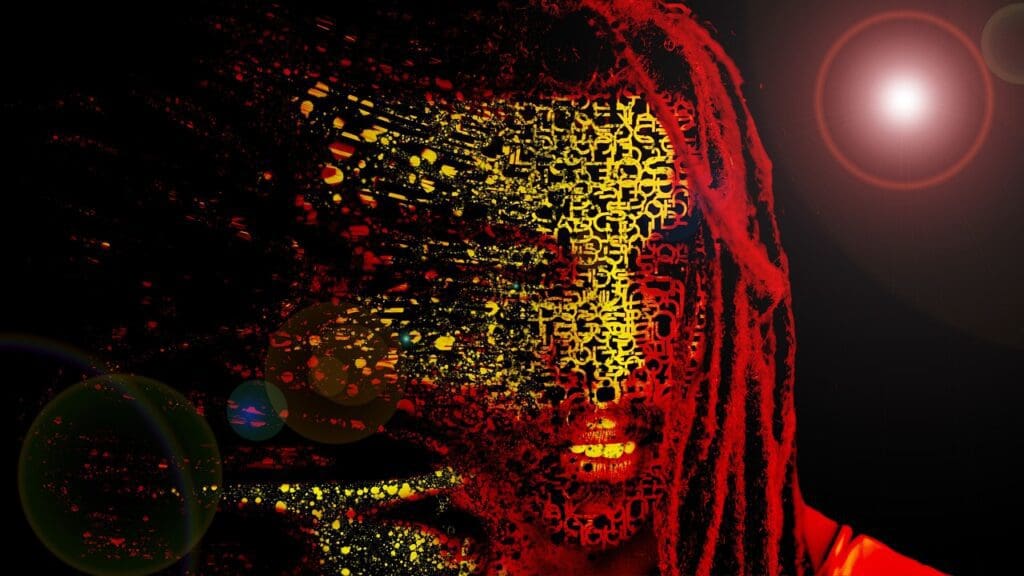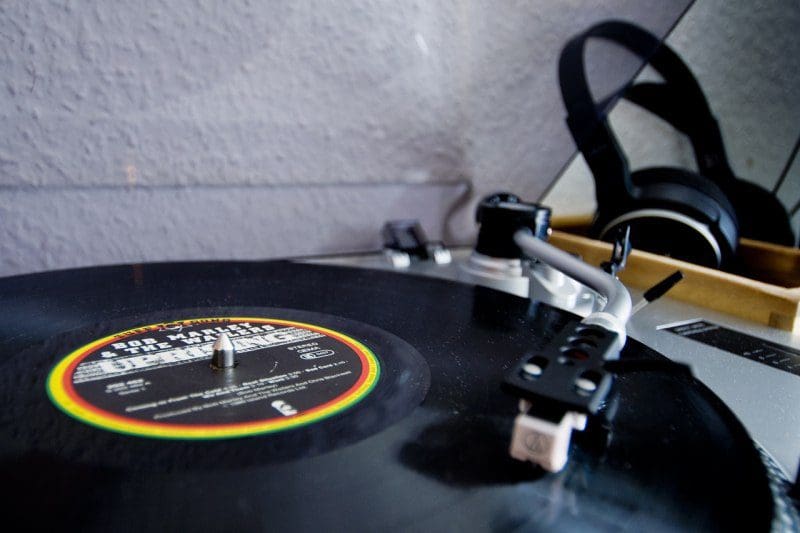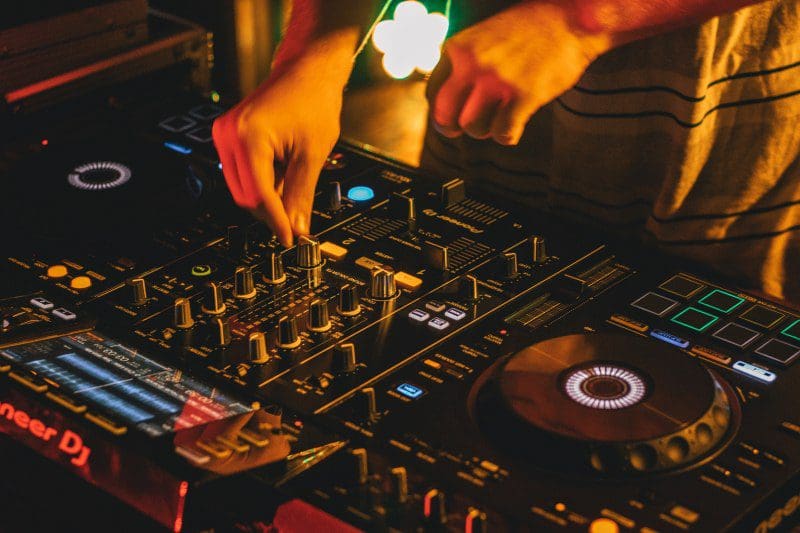
In the ever-evolving world of music, one genre that has captured hearts and ignited dance floors across the globe is ragga music. A pulsating fusion of reggae, dancehall, and electronic beats, ragga offers infectious rhythm, lively vocals, and powerful lyrics. Not only has ragga become an irresistible force on the international music scene, but it’s also a powerful medium for cultural expression and social commentary.
So, if you’re ready to dive into the captivating universe of ragga music, buckle up as we explore its roots, influences, and unique elements that have made it a genre-defying phenomenon. Let the rhythm take control, and immerse yourself in the irresistible sound that is ragga music.
What Is Ragga?
Ragga, also known as raggamuffin, ragga muffin, or dancehall, is a Jamaican music genre that dates back to the 1980s. It’s famous for fast-paced rhythms, heavy basslines, and song lyrics that often focus on social and political issues. Ragga originally evolved from reggae. However, it also incorporates elements of hip-hop, electronic music, and traditional Jamaican music.
One of ragga’s key features is its use of “toasting” – rhythmic chanting that involves speaking or singing over a beat. Jamaican DJs first introduced this technique in the 1970s and 1980s, and it’s now a signature component of ragga. Another element of ragga music is the “riddim,” a term that describes the instrumental track that underpins the song. Riddims are often created by producers, who will then sell their beat to several artists to use in their songs. This has led to a culture of “versioning,” where multiple artists will release songs using the same riddim.
A Brief History of Ragga

The term “ragga” is derived from “ragamuffin,” which means a person who is unkempt or dishevelled. The first ragga song is said to be “Under Mi Sleng Teng”, released by Wayne Smith in 1985. The song, produced by King Jammy, featured a new electronic rhythm that was created using a Casio MT-40 keyboard. This new sound was a departure from the traditional reggae rhythms that were dominant in Jamaican music for decades. The early pioneers of ragga music include artists such as Yellowman, Eek-a-Mouse, and Shabba Ranks. These artists helped to define the genre’s sound with their fast-paced rhythms and lyrics addressing social and political issues.
Ragga music quickly grew in popularity in Jamaica before spreading to other parts of the world, particularly the UK, where it became known as “ragga jungle.” Artists such as Shabba Ranks, Buju Banton, and Super Cat became international stars and helped to popularise the genre. Ragga music also had a significant influence on the development of hip-hop music, with artists such as KRS-One and Busta Rhymes incorporating ragga-style vocals into their music.
Roots of Ragga
Ragga can trace its roots back to reggae, which emerged in the 1960s and was heavily influenced by African rhythms, American R&B, and ska. Reggae music was famous for its socially conscious lyrics, but as the genre evolved, a new sound began to emerge that was more focused on partying and dance. This new sound, which came to be known as dancehall, was characterised by its faster tempo, electronic beats, and catchy hooks.
The Impact of Ragga

Ragga has been influential in shaping the sound of contemporary pop music, with artists like Rihanna, Drake, and Justin Bieber including elements of the genre in their music. It has also had a significant impact on the development of electronic dance music, with many producers incorporating ragga samples and rhythms into their tracks.
The lyrics of ragga music often address social and political issues, such as poverty, violence, and corruption. Many artists use their music as a platform to speak out against injustice and oppression and to call for change in their communities.
Despite its popularity, ragga music has also faced criticism and controversy over the years. Some have accused the genre of promoting violence, misogyny, and homophobia, and there have been calls for artists to be more responsible in their lyrics and messages.
Notwithstanding these controversies, ragga music remains a vibrant and influential genre with a rich history and a bright future ahead. Whether you’re a fan of the classic sounds of Yellowman and Shabba Ranks, or the more modern fusion of styles found in the music of artists like Sean Paul and Mavado, there’s no denying the power and energy of ragga music.
The Influence of Ragga on Electronic Dance Music
Since the 1990s, ragga has had a significant influence on Electronic Dance Music (EDM). The genre’s hard-hitting beats and catchy melodies have been incorporated into various EDM subgenres such as dubstep, jungle, and drum and bass. This fusion of ragga and EDM has created a unique sound that’s popular in dance clubs and festivals around the world.
One of the most notable examples of ragga’s influence on EDM is the emergence of jungle music in the UK in the 1990s. Jungle music, incorporating ragga’s fast-paced beats, basslines, and vocal samples, was quickly embraced by dance music fans in the UK and beyond.
Another example of ragga’s influence on EDM is the incorporation of reggae-style vocals in dubstep music. Dubstep, which emerged in the UK in the early 2000s, features heavy basslines and sparse rhythms. Reggae-style vocals, which are often used in dubstep tracks, add a melodic element to the genre and help to create a unique sound.
Ragga Culture
Ragga music is often associated with the dancehall culture of Jamaica, which emerged in the 1980s. Dancehall refers to large outdoor events where people would gather to dance and listen to music. These events were often held in the yards of people’s homes or in open fields, with sound systems that would play music for hours on end.
In addition to its music, ragga culture is also associated with a distinct style of fashion and dance. The fashion is characterised by brightly coloured clothing, often featuring bold patterns and designs, as well as accessories such as chains and bracelets. The ragga dance style is energetic, often involving acrobatic moves and intricate footwork.
Some have criticised ragga culture for its sometimes explicit lyrics and its association with violence and drug use. However, proponents of the genre argue that it provides an outlet for marginalised communities to express themselves and their struggles. Overall, ragga culture continues to be a vibrant and influential part of the global music and cultural landscape.
Top Ragga Tracks
Chaka Demus & Pliers – Murder She Wrote
“Murder She Wrote” is a classic song by Jamaican duo Chaka Demus & Pliers. Released in 1992, the track became an instant hit, topping charts in several countries. The song’s infectious beat and catchy chorus made it a staple in clubs and parties around the world.
The lyrics tell the story of a woman who is wanted for murder, and the duo’s smooth vocals and playful delivery add to the song’s charm. “Murder She Wrote” remains a classic in the genre and a testament to the enduring power of dancehall music.
Beenie Man – King of the Dancehall
“King of the Dancehall” is a popular dancehall song by Jamaican artist Beenie Man. The 2004 song showcases Beenie Man’s unique blend of reggae, dancehall, and hip-hop influences, featuring his signature fast-paced flow and catchy hooks. The song’s lyrics celebrate the artist’s status as the “King of the Dancehall,” highlighting his dominance in the genre and his ability to command the attention of audiences worldwide.
The track remains a beloved classic and a testament to Beenie Man’s enduring influence on Jamaican music.
Shaggy – Repent
“Repent” is a reggae-influenced song by Jamaican-American artist Shaggy. The song features a catchy chorus and a strong message about taking responsibility for one’s actions and seeking forgiveness. With its upbeat tempo and infectious melody, “Repent” is a feel-good track that encourages listeners to reflect on their past mistakes and strive for personal growth.
Shaggy’s smooth vocals and the song’s upbeat instrumentation make it a popular choice for dance parties and social gatherings. Moreover, its positive message continues to resonate with fans around the world.
The Bug feat. Flowdan – Jah War (Loefah Remix)
The Bug feat. Flowdan – Jah War (Loefah Remix) is a classic track that showcases the raw power of dubstep and the groove and flow of ragga. The track features Flowdan’s intense and aggressive vocals over a heavy bassline and distorted synths. Loefah’s remix adds an extra layer of darkness and depth. Ominous soundscapes and a slower tempo allow the track to breathe. The use of sirens and gunshots adds to the sense of urgency and chaos, making this track a staple in many playlists.
Yellowman – Zungguzungguguzungguzeng
“Zungguzungguguzungguzeng” is a classic track by Jamaican artist Yellowman. The song’s distinctive rhythm and catchy chorus have made it a popular and influential tune in the genre. Yellowman’s playful lyrics and energetic delivery showcase his unique style and personality, making him a standout figure in the dancehall scene.
The song’s title is derived from a Jamaican slang phrase meaning “to move in a zigzag fashion,” which perfectly captures the song’s infectious groove. “Zungguzungguguzungguzeng” remains a beloved classic in Jamaican music.
Shabba Ranks – Ting-A-Ling
Shabba Rank’s classic 1992 track “Ting-A-Ling” features the singer’s signature deep, gravelly voice over a pulsating beat and catchy melody. The lyrics are a playful ode to the female form, with Ranks boasting about his ability to attract women with his charm and style.
The track was a massive hit in Jamaica and internationally, helping to cement Shabba Ranks’ status as one of the genre’s most iconic figures. Even today, “Ting-A-Ling” remains a beloved and frequently played classic of the dancehall genre.
Ragga Twins – Deadly Zone
“Deadly Zone” is a classic ragga jungle track by the Ragga Twins, released in 1995. The song features fast-paced breakbeats, heavy basslines, and the distinctive vocals of the Ragga Twins. The pair deliver rapid-fire verses full of energy and attitude. Furthermore, the lyrics describe the dangerous environment of the inner city, with references to crime, violence, and poverty.
“Deadly Zone” is a prime example of the 1990s ragga jungle sound, a fusion of reggae, dancehall, and jungle music. The track remains popular among fans of jungle and bass music, with numerous artists remixing and sampling it over the years.
Frankie Paul – I Know
“I Know” is a classic song by the late Jamaican singer Frankie Paul. The track was released in 1987 and became an instant hit in Jamaica and beyond. The song features Paul’s signature soulful vocals over a rootsy rhythm, with lyrics that speak of love and devotion. The track’s catchy chorus and melody have made it a staple of reggae music. It continues to be played on radio stations and sound systems worldwide.
“I Know” is a timeless classic that showcases Frankie Paul’s exceptional talent as a singer and songwriter.
Capleton – Who Dem/Slew Dem
“Who Dem/Slew Dem” is a popular song by the Jamaican artist Capleton. The song was released in 1994 and quickly became a hit due to its catchy beat and powerful lyrics. The song’s title refers to Capleton’s enemies and his defiance towards them. Capleton uses his signature style of aggressive and rapid-fire delivery to call out those who oppose him. He also takes the opportunity to proclaim his dominance in the music industry.
The song’s popularity has endured over the years, and, thanks in part to a hugely successful remix by British drum and bass producers Chase and Status, it remains a staple in playlists around the world.
SL2 – On a Ragga Trip
SL2’s “On a Ragga Trip” is a classic rave anthem from the early 90s. The track features a catchy reggae sample and a high-energy breakbeat that quickly became a staple of the UK rave scene. The song’s melody and upbeat tempo made it a favourite of DJs and ravers alike, and it remains a beloved track to this day.
“On a Ragga Trip” showcases the best of the rave era. Electronic and reggae influences combine with a sense of unbridled joy and energy. It’s a testament to the power of dance music to bring people together and create unforgettable moments on the dance floor.
Lieutenant Stitchie – Natty Dread
Lieutenant Stitchie’s “Natty Dread” is a classic track that showcases the artist’s lyrical prowess and vocal delivery. The song is a tribute to the Rastafarian movement and its iconic figure, Bob Marley. Stitchie’s powerful voice and commanding presence are on full display as he delivers lyrics that celebrate the beauty and strength of the Rastafarian culture.
The song’s bouncing rhythm and catchy melody make it a timeless classic that continues to resonate with fans of reggae music around the world.
Final Thoughts on Ragga Music
From its origins in Jamaica to its global popularity today, ragga has influenced countless artists and genres. Its fusion of reggae, dancehall, and electronic music has created a unique sound that continues to evolve. Along the way, it’s also inspiring new generations of musicians. Ragga music has played a significant role in shaping popular music culture, particularly in the Caribbean and African regions. Furthermore, it continues to influence the development of modern genres, such as hip-hop, drum and bass, and dubstep.
Despite its popularity, ragga music has faced criticism for its explicit lyrics and glorification of violence. However, many artists have used the genre to address social issues and promote positive messages.
Overall, ragga music has a rich history and continues to evolve with new artists and styles. It remains a vital part of the music industry and a significant cultural expression for many communities around the world.









